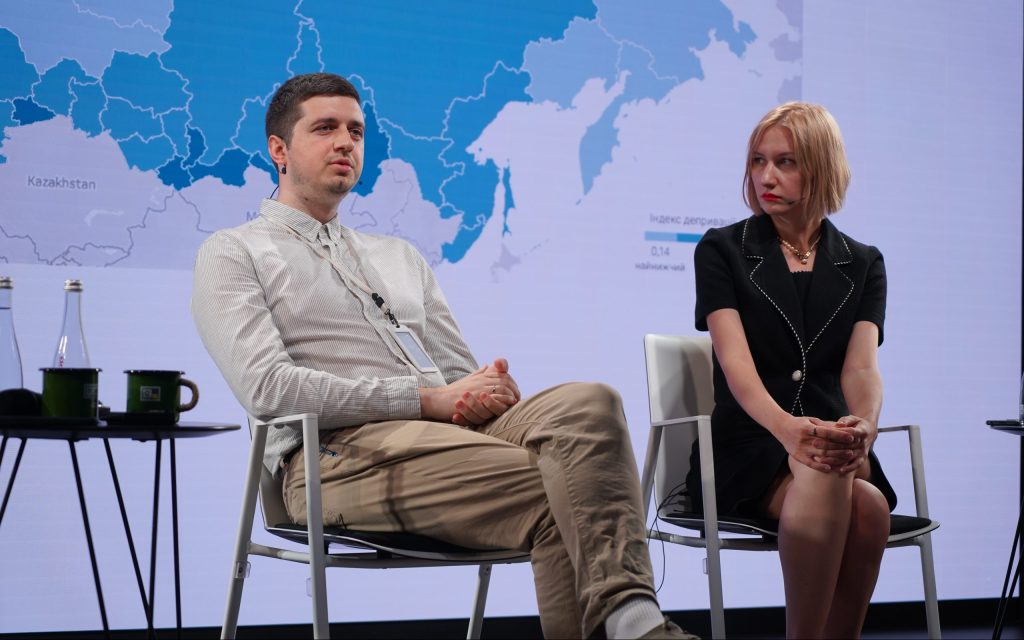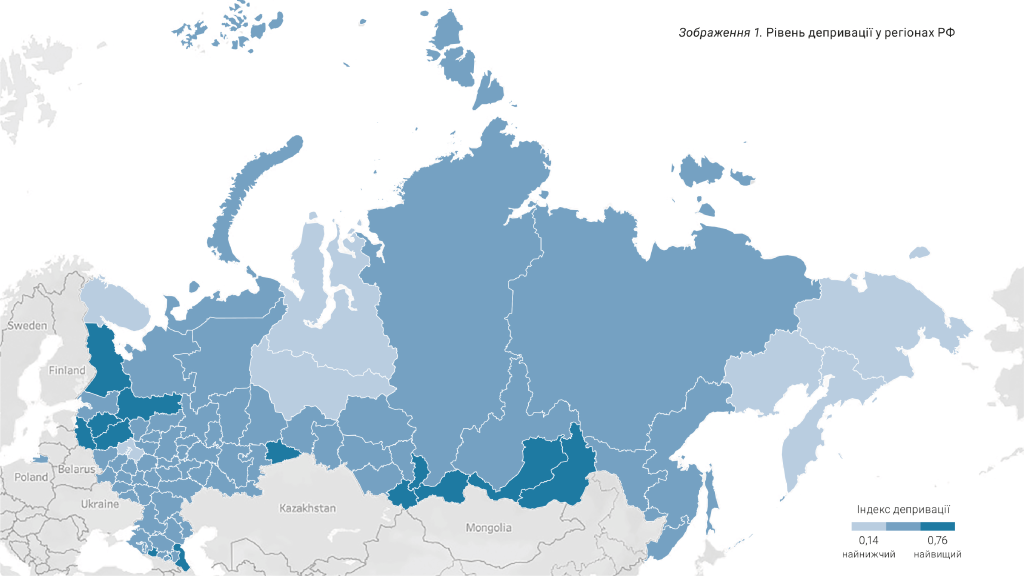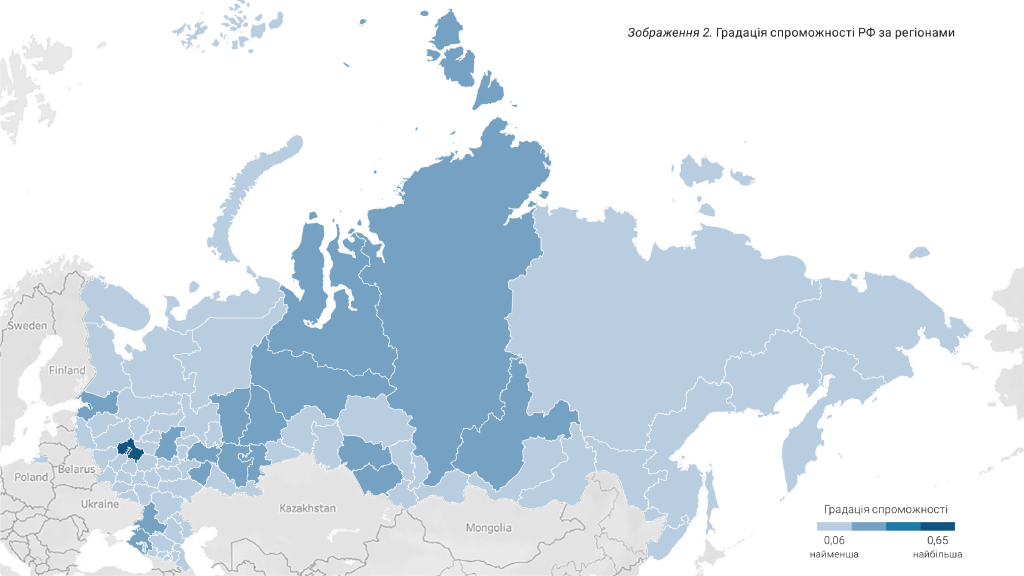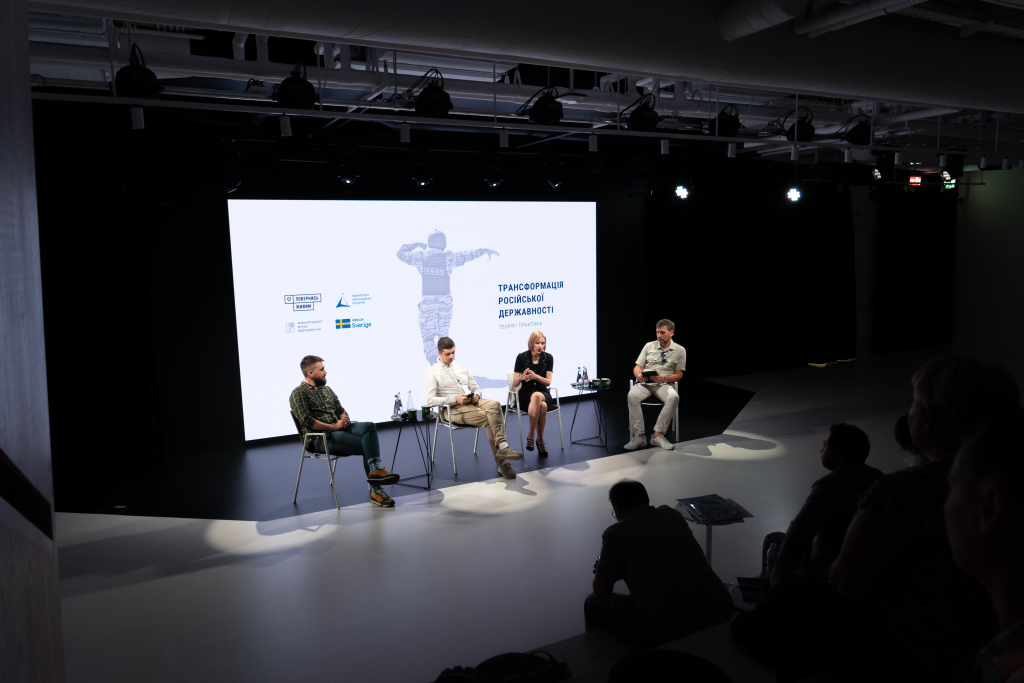"Ukraine will not win if it only fights back"

On July 25, analysts of “Come Back Alive” presented the study “Transformation of Russian Statehood”. The work contains an analysis of ways to study Russia and its regions in depth, ways to find its weaknesses in the socio-security, diplomatic, information and cultural, cyber and economic dimensions, as well as recommendations for further action.
Anton Muraveinyk, Head of Analytical Department, and Maria Kucherenko, Senior Analyst, spoke about the research and its possible practical application. Below are the key points of their presentations.
Anton Muraveinyk, Head of Analytical Department, “Come Back Alive”:
– It is necessary to counteract Russia in all major dimensions – socio-political, diplomatic, information and cultural, economic, and cyber dimensions. A confrontation in the military alone may not end in our favor.
Changing the shape of Russia on the map does not guarantee the absence of a threat to Ukraine. That is why we never talk about the collapse of the Russian Federation as a key goal, the achievement of which can solve all our problems. In order to neutralize the threat, we need to understand what social groups and regions exist in Russia and how they differ. This is a huge territory with 83 distinct constituent regions, not including the temporarily occupied territories of other countries.
Deprivation is a kettle in which further social processes are born.
When studying the socio-political dimension of Russia, we used two key indicators as a basis. The first is the deprivation of the population. It is about dissatisfaction due to differences in expectations and the real state of affairs. The second indicator is the capacity of the state, i.e. its ability to project power and force in the region.
Russia is not homogeneous. People in the regions have different levels of satisfaction with their lives. This is a good basis for further work. Deprivation alone is not a driver of a hypothetical revolution. But it is a kettle in which further social processes are born.

It may seem that the higher the deprivation in a region, the more prospects there are for working with it. But this is not always the case. In some regions, deprivation is so high, people live so poorly that they don’t care what happens. They have only one goal – survival. Nothing else bothers them.
The highest deprivation is in the Republic of Tuva. This does not mean that this is some kind of a point of focus. This data should be used as data. It should be used to build further hypotheses, to test, confirm or disconfirm. It should be a continuous research process. Unfortunately, we do not have it.
Deprivation can also be measured within social groups. For example, among workers in the automotive industry in Russia. People who lost their jobs felt the impact of sanctions. Russians had to rebuild their economy. Certain groups felt dissatisfaction, which continues to grow.
We must create conditions so that Russia spends its resources not where it wants, but where there is tension.
The capacity of a state is the ability to project authority and force. This is not necessarily about the presence of troops, but also about infrastructure, communications, etc. And this all differs in the regions of the Russian Federation. There is an unequal number of military units and the RosGuard, police stations, roads, highways, which also play an important role in the movement of the power component and government functions.
The most interesting regions of Russia for Ukraine are those where deprivation is quite high and the capacity of the state is low. This is a field for deeper and further study.
In general, the idea is that we have to create conditions so that Russia does not spend its resources where it wants, but where tension will be created. This is the minimum we must do and without which the enemy cannot be defeated.

We cannot ignore the cybersphere. This is one of the strategic dimensions of the confrontation between states in the future. It is important that the military and political leadership and key people in the security and defense forces understand this. Since 2014, Ukraine, with the help of its partners, has built a good cybersecurity system. Russia has focused more on influence operations. It is probably one of the top five countries in the world in terms of developing cyber capabilities, but its security is not so good. This area is attractive because you cannot be 100% secure.
Russia’s weakness in the economy is logistics and supply chains. Ukraine’s task is to break them in order to cause disruptions. This is not only about the gas transportation system, but also about roads and railways, seaports, etc.
Ukraine’s task is to break russia’s supply chains in order to cause disruptions.
Sanctions policy cannot be the only way to break supply chains. Unfortunately, it is not as effective as Western and Ukrainian experts expected. Russia has a mechanism to circumvent it through thousands of intermediary firms. Imposing sanctions on them only leads to the replacement of hubs in the supply chain. Sanctioned products are still entering Russia. Components for missiles and drones are purchased in Europe, the United States, and the Middle East. This can hardly be stopped. However, the sanctions policy still has an impact. If we can inflict at least some damage on Russia, we should do it.
Maria Kucherenko, Senior Analyst, “Come Back Alive”:
– Ukraine will not win if it gets caught up in the enemy’s initiative and only fights back. Victory is won through competent asymmetric actions. We started working on this study in 2021. At that time, Ukraine was in the Minsk and Normandy negotiation formats, and as a party to them, we were mostly subject to conditions imposed by Russia. Our global task was to answer the question: how to interact with the enemy in a way that would hurt him more than in previous years?
The transformation of Russia is its disarmament. Not only in the nuclear, military, financial, and diplomatic sense, but also in the informational and cultural sense. Transformation must include the Russians’ realization of what they have done. This is not Putin’s war, but the war of the Russian Federation and its citizens.
An important phenomenon for research and work is the Russian political telegram. Information and how Russia interacts with it is an area where there are many vulnerabilities. The Russian authorities are a closed system of total distrust. The FSB’s fifth service does not know what is happening in the General Staff or the presidential administration, not even what the next office is thinking. In a climate of total distrust, semi-anonymous messages, gossip, and rumors are exactly what these people want to hear. If we know whose channels these are, who is responsible for the network – the presidential administration, security forces, or individuals close to the government – we can understand what this or that “tower” thinks.
Russian political telegram is a huge PR market where almost anything is possible for money.
The distrust of the system’s players in each other is a field in which we should experiment. The Russian political telegram is a huge PR market where almost anything is possible for money. Knowing the limitations of the main networks, how everything works, you can take actions that will lead to total disinformation of a certain structure.
Russia is a federation without a federation. All the rights of peoples have been leveled. Ukraine has to work with this and is doing so. For example, it involves representative bodies of the peoples living in Russia to highlight the ethnocide at the UN.

Attention should be drawn to Russia’s appropriation of so-called controversial cultural brands. Especially those associated with the occupied territories. We also need to talk about Russia’s attitude towards them: it claims that Aivazovsky is a Russian artist and at the same time neglects his museum in occupied Feodosia.
The diplomatic part of the study was an attempt to analyze what Russia is doing on international platforms to promote its position and level the ground for which they were created.
Russia’s main task is to erode the world order. This is not just about the war it unleashed against us in 2014, but about all the wars it has been involved in. Russia claims that there are no rules in the world except those dictated by it. The world turned a blind eye to this. The unpunished evil is growing. We describe in detail the reaction of the international community to the actions of the Russian Federation, and what we got as a result – mass graves and genocide.
There is no “war in Ukraine” and there has never been one. The Russian-Ukrainian war is ongoing and affects the whole world.
The most convincing guarantee of our security is NATO membership. All the others do not work. We have analyzed the entire path of Ukraine from the Budapest Memorandum to the present day and the security proposals that are being tried to “push” on us.
There are no isolated wars in the world. There is no “war in Ukraine” and there has never been one. There is a Russian-Ukrainian war going on that affects the whole world. To dissociate ourselves and say that these are the problems of Ukrainians, who should give in, be softer in negotiations, does not work.
The first open part of the study “Transformation of Russian Statehood” is avaible on our website. This document describes the socio-political block of the study in the part that can be published to the public. It is about ways to study the deprivation of the population and measure the capacity of the Russian Federation in the regions.
The full text of the document is not public and is intended primarily for key stakeholders – military and political leadership, specialized representatives of the Security Forces and the Defense Forces of Ukraine, etc.
Поділитись
